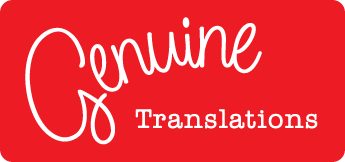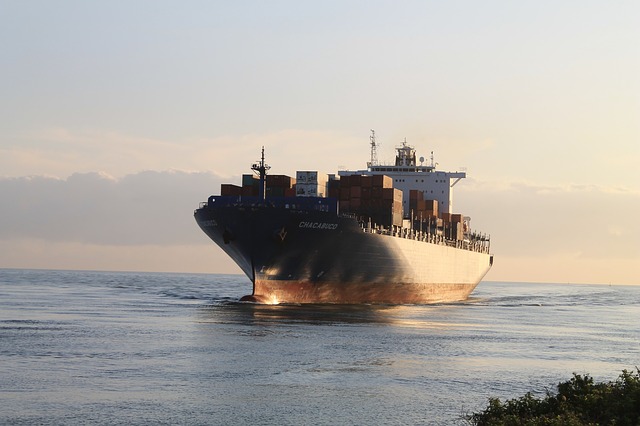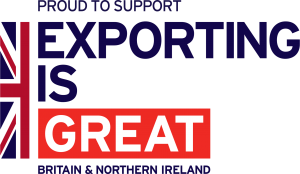Whether you are new to exporting or have been doing it for some time now, you will certainly already know all the numerous benefits that exporting your products or services can bring to your business. However, as I am sure you will agree, it can be an overwhelming process. Legislation, paperwork or the linguistic and cultural differences between the UK and the target country are a few of the things that need to be taken into consideration.
Translation and localisation play a key role in the export journey. If the country you would like to export your service or product to speaks a different language or dialect, your audience would like to buy in that language, even if they have some knowledge of English. According to research, over 70% of consumers are more likely to buy a product or service with information in their own language.
Attracting your foreign audience
Your website is probably the first thing your overseas prospects will look at, as it is easily available and accessible, so it is important that you look at the pages with the most relevant and engaging content and localise these into the target language. Alternatively, if your budget is very limited, you can create a page within your website for that country with all the important information.
By localising your website, you don’t only translate the words and meaning, but also adapt these to the culture. For example, in most Spanish-speaking countries, the “Home” page is called the “Start” page (“Inicio“). It is also important to research the keywords that your audience is likely to use in their searches and introduce the SEO to your website in that language.
Apart from the website, think about all the marketing literature you currently have or plan to have, which one would be more effective and cost-effective when it comes to attracting and communicating with your target clients? Are you planning to attend trade shows in the country or visit agents and clients there? In that case, your business card and brochures should also be translated.
If advertising campaigns form part of your export strategy, translation then becomes “transcreation”, and a transcreator or a bilingual copywriter will create new content for your target country, working from the English advert (if any) or your specifications. To learn more about transcreation, please read “Transcreation, what’s that?”.
Communicating with your foreign audience
You have translated, localised and possibly transcreated your marketing material. Now, how do you communicate with your future overseas clients? Even if you use an agent or distributor in the target country, you may receive direct enquiries and it is important that you can reply to these in a timely and professional manner.
Machine translation is a useful tool when you need to “get the gist” of an e-mail or article, and it is widely available for free on the Internet; however, when it comes to business, you want to make sure nothing gets lost in translation and you give a professional image by sending messages written well in the target language and with no spelling mistakes. Producing a few standard e-mails about your services or products in the target language can do the trick, as it can relying on a telephone interpreter who could assist with telephone calls and conferences.
Translation required by law
If what you are selling is a product, depending on the product, you will need the pack information, labels and instructions translated for it to be legally-compliant. In the case of food labelling, most countries need this in the local language too. Therefore, translation here is not an option, but a legal requirement. Your trade adviser will be able to help you identify your specific requirements.
When it comes to the translation of legal documents for export, the type of documents requiring translation will also depend on your product/service and the country you are exporting to. Examples of the documents that generally need to be translated are contracts and your business terms and conditions.
Also, depending on the country, the legal translations will need to be carried out by a certified translator, a sworn translator or a Notary Public. On my blog posts “A Notary Public, the legal translators’ best ally” and “What to look for in a legal translator” I expand on the different types of certified translations.
The importance of choosing the right translation agency
With so many Language Service Providers (LSPs) out there offering anything and everything, how do you choose the provider that is right for you? Here is a quick guide to help you:
- First of all, don’t just rely on staff, friends or relatives who speak the language or on machine translation alone. Translation is a professional skill and, when it comes to attracting and communicating with a foreign audience and exporting your product or service, it is crucial that the right message and the technical and legal information are perfectly and legally conveyed. This can make or break your reputation, not only in your target country, but worldwide;
- Choose a LSP who spends time understanding your goals and requirements, who is familiar with your industry and your products or services and that can help you with every aspect of the export translations described above, from the beginning to the end of your export journey. I like to call it a “Language Service Partner” as opposed to a “Language Service Provider”. Choose a LSP who is honest, knowledgeable, helpful and easy to talk to; ideally, one who is based in the UK and you can easily meet up with, but one who, at the same time, has strong links with your target countries;
- Choose a LSP who can help with specific dialects (e.g. Spanish for Spain and Spanish for Latin America) and who can offer proofreading by a second translator;
- Choose a LSP who can build glossaries and style guides with you (as opposed to for you), to ensure not only terminology consistency across all translations, but also legal, technical and branding compliancy;
- Finally, choose a LSP who can either provide other translation-related services, such as typesetting, SEO and interpreting, or who can refer you to other trusted partners.
- In export, translation is more than a one off task, it is the gateway to the success of your business overseas. It is important to think about translation at the beginning of your export journey, to include it in your export strategy and budget, and to choose the right partner to help you along the way.
Written by Eva Túnez Salvador, Director of Genuine Translations.
Eva founded Genuine Translations in 2014. She holds a BA in Translation and Interpreting, she is a sworn translator appointed by the Spanish Ministry of Foreign Affairs, a member of the Chartered Institute of Linguists and the Institute of Export and International Trade, and she has a background in business management.


